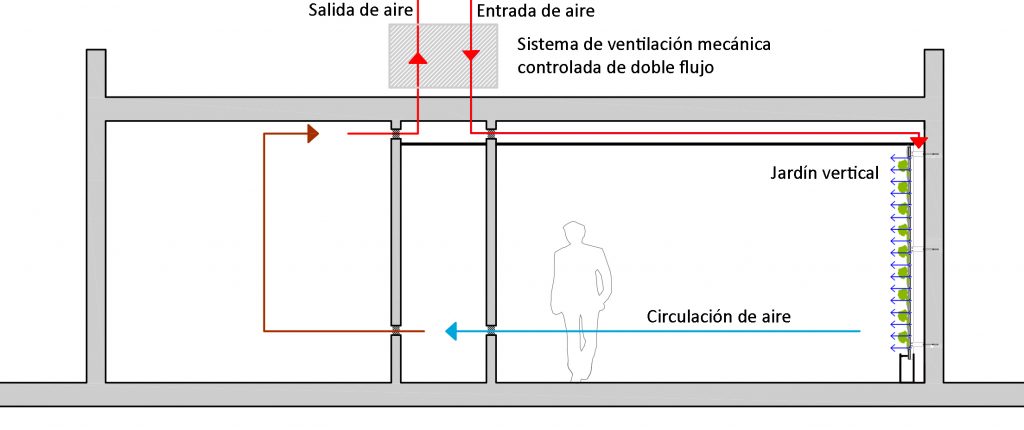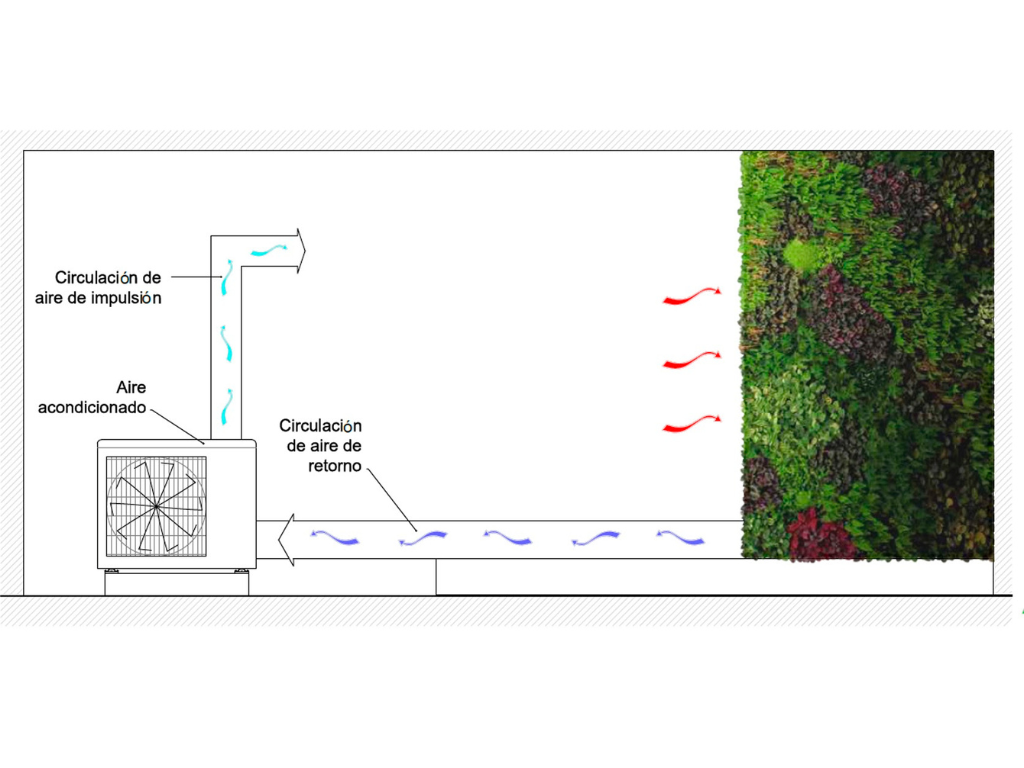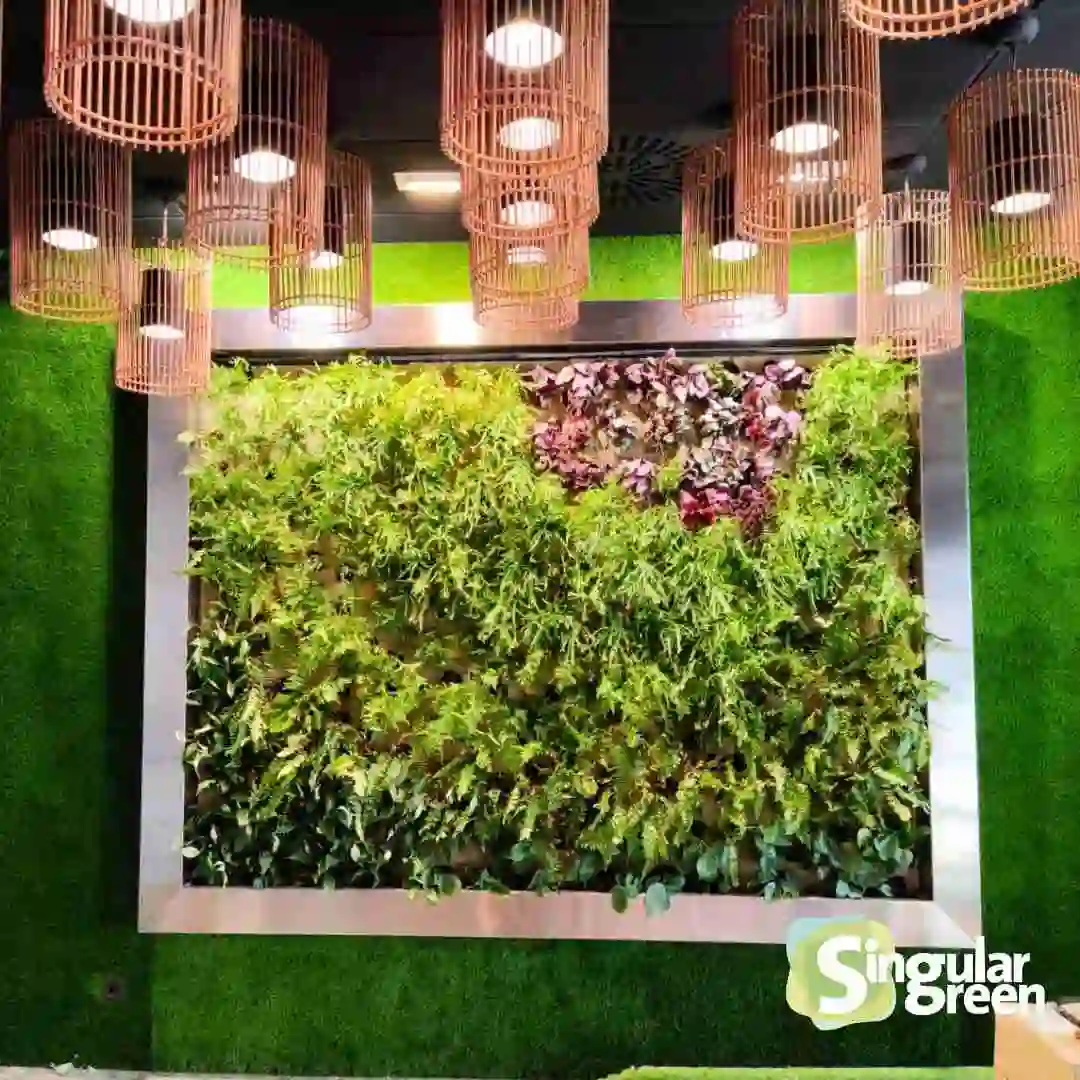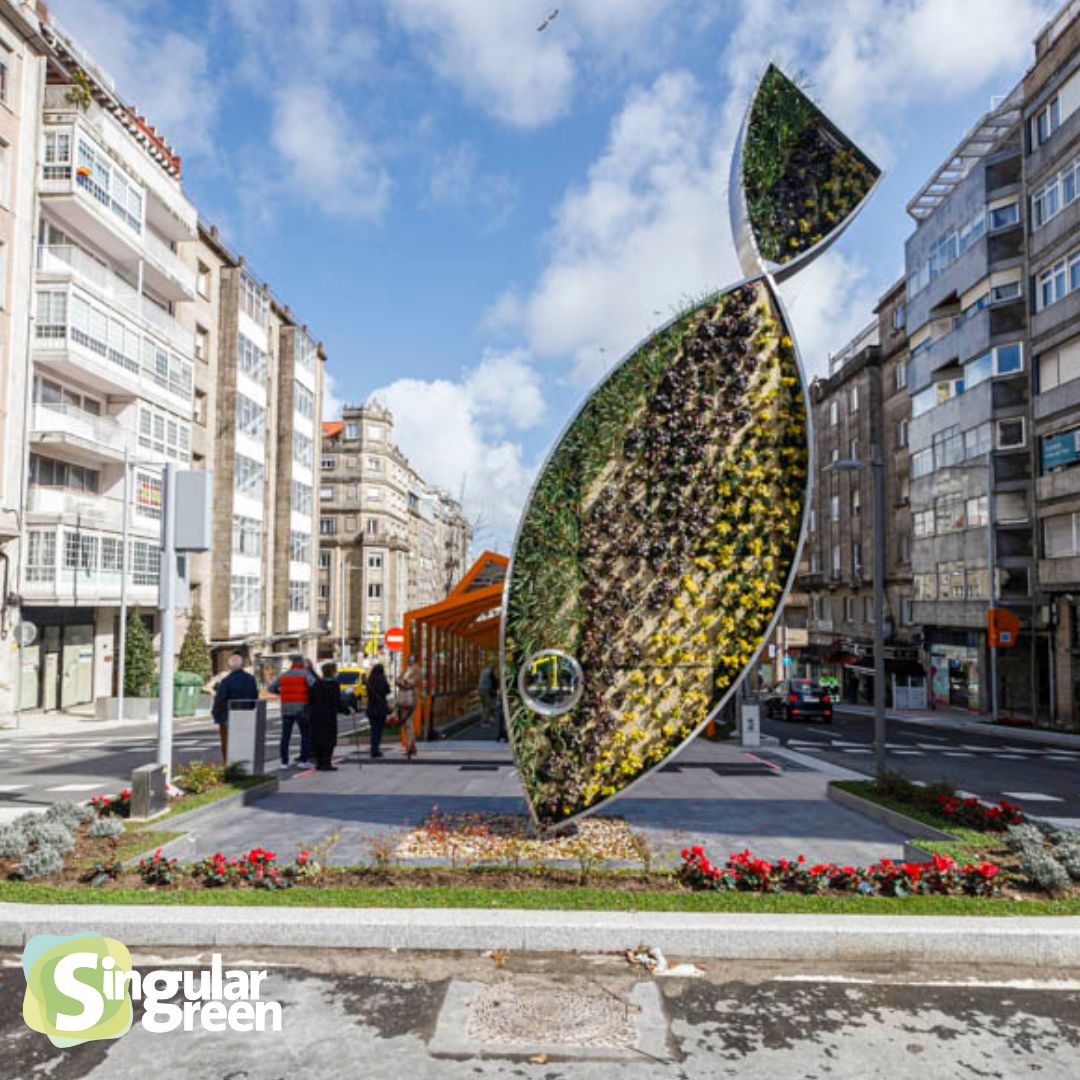Natural air conditioning has become an increasingly popular alternative to traditional cooling systems.
This method harnesses natural resources to keep environments cool and comfortable, significantly reducing energy consumption and environmental impact. In a world where sustainability is a priority, natural air conditioning is not only an environmentally friendly option, but also an economical and healthy solution.

Benefits of Natural Air Conditioning
Opting for natural air conditioning offers numerous benefits. Firstly, it reduces dependence on energy-intensive air conditioning systems, thereby reducing greenhouse gas emissions. In addition, this type of air conditioning improves indoor air quality, as it does not recirculate stale air but constantly renews it.
In addition, naturally air-conditioned spaces tend to be more comfortable and less prone to health problems related to the dry, cold air generated by traditional air conditioners.
Green Shades: An Innovative Solution
One of our obsessions at SingularGreen and nature-based solutions is precisely to solve air conditioning problems in a natural way. Harnessing the potential of nature in air conditioning is the key to saving energy and improving air quality and people’s wellbeing.
Green Shades is the first system in the world that allows the installation of plant canopies or tensioned sails covered with vegetation. These elements open up a new range of possibilities for urban landscaping and the air conditioning of spaces covered by tensile structures. In cities, where heat is a problem, Green Shades is an optimal solution for shopping streets, terraces and squares.


The spaces and projects created with Green Shades reduce the temperature both in their surroundings and under the canopy. Thanks to the evapotranspiration produced by the plant system, the sails act as plant air conditioners with a cooling capacity of 112 frigories/m². In addition, the composition and the selected plant species are optimised for the absorption of NOX and CO2, contributing to the improvement of air quality in our cities.
Urban BioFilter: Improving Urban Air
The World Health Organisation estimates that one in eight deaths in Europe is a result of air pollution. At SingularGreen we are involved in incorporating nature-based solutions (NBSs) in cities.
Urban BioFilter stems from this premise. It is a mobile vertical garden that can be introduced in squares, open spaces and other urban installations. This street furniture is not only aesthetic and functional, but also filters the air in public spaces.
Urban BioFilter incorporates fans with solar batteries to increase the cooling effect by forcing air circulation from the outside to the inside of the vertical garden. This allows the expelled air to have a lower temperature and higher quality.


In addition to purifying the air, these ‘active’ vertical gardens help to reduce the ambient temperature through plant evapotranspiration.
SingularAir: Integrating Technology and Nature
In our effort to innovate in natural air conditioning, we have developed SingularAir, a system that combines advanced techniques to improve air conditioning and air quality. SingularAir is an integrated solution that uses natural and technological components to create healthier and more sustainable environments.
SingularAir not only focuses on passive cooling and natural ventilation, but also integrates air purification and humidity control technologies. This combination guarantees an optimal indoor environment, adapting to the specific conditions of each space and offering a customised solution.

Practical Applications of Natural Climate Control
Natural air conditioning can be applied in a variety of contexts, from homes and offices to public and commercial spaces. Some methods include the use of plant shading in patios and terraces, the installation of vertical gardens on facades and the incorporation of cross ventilation systems that take advantage of natural air currents.
In urban projects, such as those developed by SingularGreen, natural air-conditioning solutions not only improve thermal comfort, but also beautify the environment and encourage biodiversity. These projects are especially useful in densely urbanised areas, where space for vegetation is limited and temperatures can be extreme.
Implementation Challenges and Considerations
Implementing natural air conditioning systems can present certain challenges. It is crucial to conduct a pre-study to determine the specific site conditions and design appropriate solutions. Aspects such as orientation, type of vegetation and support structures must be carefully planned.
In addition, natural air conditioning requires regularmaintenance to ensure its effectiveness. Plants must be properly watered and cared for, and systems must be checked periodically to ensure that they are working properly.
The Future of Natural Climate Control
The future of natural air conditioning is promising. With the growing interest in sustainability and energy efficiency, more and more projects are incorporating these innovative solutions. Research and development in this field continues to advance, offering new technologies and methods to improve natural air conditioning.
The integration of advanced technologies, such as sensors and automated systems, can further optimise the performance of these systems. In addition, collaboration between architects, engineers and sustainability specialists is key to developing comprehensive and effective solutions.
Natural air conditioning is not only an answer to today’s energy and environmental challenges, but also represents an opportunity to create healthier and more comfortable spaces. As we continue to explore and adopt these solutions, we can look forward to a more sustainable and livable future for all.







